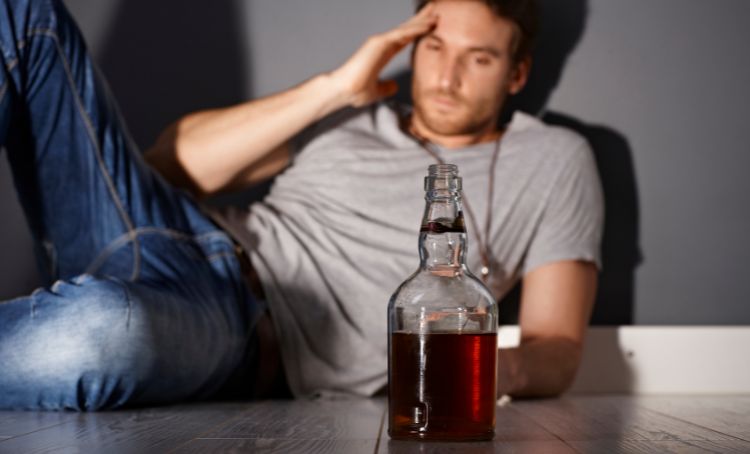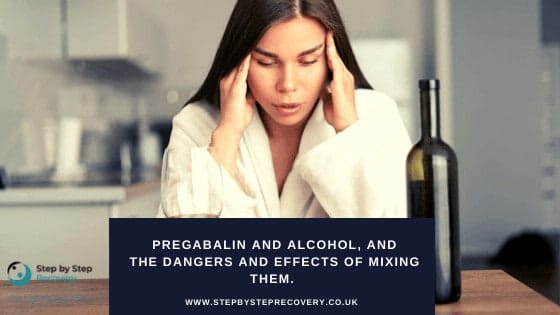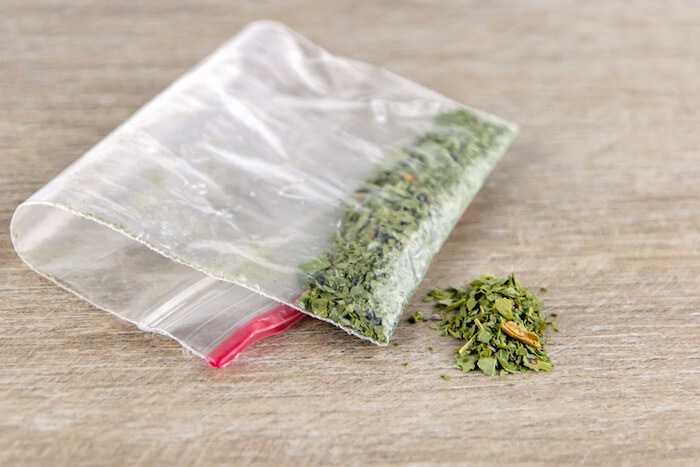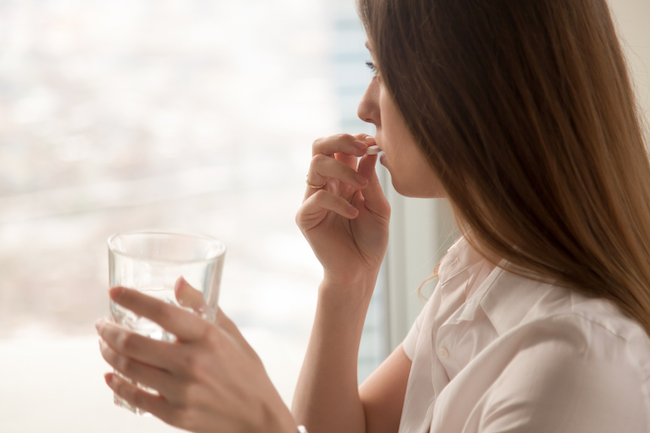Updated November 2023
Mixing Pregabalin with alcohol can be extremely dangerous and may lead to serious health consequences. Drinking alcohol to enhance the effects of illicit and prescription drugs is a common practice, referred to as polysubstance abuse. However, when discussing polysubstance use, people rarely consider the risks of using Pregabalin and drinking alcohol.
Pregabalin abuse and addiction are currently on the rise as a street drug. Sold by drug dealers and online for recreational use, when Pregabalin is taken in high doses and mixed with alcohol, it has the potential to be a fatal combination.
The purpose of Step by Step Recovery is to support people in overcoming addiction long-term. If you or someone you care about is abusing drugs and, or alcohol, we offer free guidance, information, treatment options, and the next steps.
For free, confidential advice, please fill out our online contact form. Alternatively, you can call our understanding team at 0800 170 522 for more information about treatment at our private residential rehab.
Pregabalin (Lyrica) Drug Information
Pregabalin, also known by its generic name Lyrica, is an anticonvulsant medication. Off-label use of Pregabalin for nerve pain and anxiety disorders has increased prescriptions of Pregabalin in the UK and USA significantly.
Pregabalin lowers the number of pain signals sent by nerve cells. While there is not the same level of risk as addiction to opioid painkillers like Oxycontin, and it can be used for the treatment of long-term pain, Pregabalin still has a high potential for risk of addiction and abuse..
Like all medications, Pregabalin comes with associated common side effects, which include:
- Dizziness
- Drowsiness
- Difficulty concentrating
- Blurred vision
- Dry mouth
- Weight gain
- Swollen hands and feet.
Most of the time, these effects will be mild and should go away within a few days or weeks. If any of these side effects are causing you concern or persist beyond two weeks, you should speak to your doctor or a healthcare professional as soon as possible.
Anticonvulsants such as Pregabalin or Gabapentin are becoming more easily available on the streets as well as on the dark web. When taken in excess, Pregabalin can produce feelings of euphoria and relaxation. This is why taking Pregabalin with alcohol to make these effects more potent is so popular when abusing the drug.
Overdose of Pregabalin
Pregabalin is also commonly mixed with other drugs, like opioids, to amplify their effects. While an overdose on Pregabalin alone is uncommon, mixing Pregabalin with other drugs increases the risk of experiencing a negative reaction, some of which can be fatal.
The Danger and Risks of Pregabalin With Alcohol

It’s relatively easy to dismiss that medications could negatively react with alcohol. Almost all prescription medications come with a warning that you should avoid drinking alcohol, but many people drink alcohol while on these medications without any serious negative effects. When people take Pregabalin for anxiety, alcohol use may already be a regular occurrence, and the risk of taking it with alcohol may not even be taken into account.
Drinking alcohol while taking Pregabalin can significantly enhance the negative effects of both substances. This means that Pregabalin’s side effects can become much worse when mixed with alcohol. Similarly, the effects of alcohol can appear far more severe when taken with Pregabalin. For example, you may become seriously intoxicated after just a few drinks if you’re taking Pregabalin and alcohol together.
Pregabalin with Alcohol Effects on the Body
Alcohol is classified as a depressant, but not for the reason that many believe. It’s known as a depressant because of the way it affects the central nervous system, not because of the way it can affect your mood. Although alcohol may make you feel more energised, it also slows down the central nervous system (CNS). This makes it harder for the brain to get messages to the rest of the body. Pregabalin with alcohol will increase its impact on the brain, which is why taking them together can cause serious problems.
One of the most serious adverse effects of Pregabalin and alcohol is respiratory depression, which can be fatal if not treated. If you take Pregabalin or know someone who does, it’s important to be aware of the possible side effects that could arise as a result of mixing alcohol with Pregabalin. Being able to recognise the signs of respiratory depression could save your or someone else’s life.
Signs of Respiratory Depression
- Shortness of breath
- Fast breathing
- Whistling sound when breathing
- Chest pain
- Dizziness
- Extreme tiredness.
In the event of any of the above signs, always call 999, even if you or the person experiencing these symptoms do not feel they are severe.
Using Pregabalin with alcohol can also increase the sedating effects it has and may lead to serious falls and accidents. If you do drink alcohol while taking Pregabalin, you should never drive or operate heavy machinery.
In addition to the physical effects of alcohol and Pregabalin, both substances can also significantly impact your mood, thoughts, and behaviours. Mixing the two can have serious implications, such as erratic behaviour and making decisions to do things you would not usually do.
Furthermore, the risk of alcohol and Pregabalin is higher for the elderly and people who take other medications. This ultimately comes down to the way the body processes alcohol. As people age, it takes longer for the body to metabolise alcohol, which means it stays in the system longer. There is also an increased risk of respiratory depression from alcohol and Pregabalin due to the potential side effects of medications such as opioid painkillers.
Pregabalin for Anxiety
Using Pregabalin for anxiety has become more common. Addiction and mental health issues mean that developing a Pregabalin addiction with alcohol is relatively common for people who are prescribed it for the treatment of anxiety disorders.
Treatment for Pregabalin Addiction With Alcohol

Abuse of Pregabalin and alcohol can also lead to Pregabalin and co-occurring alcohol addiction. Treatment options for Pregabalin with alcohol addiction include a rapid detox, which can help to reduce the withdrawal symptoms. This can seem like a sensible and affordable way to overcome addiction to Pregababalin and alcohol, but we would urge you to read our blog about addiction treatment at a Rapid Detox vs Residental Rehab.
At our drug and alcohol addiction residential rehab in Essex, we specialise in the treatment of co-occurring addictions and polysubstance abuse. We can support you through every step of the recovery process, giving you the best chance of long-term recovery. Treatment alternatives include addiction treatment, which can be accessed for free through the NHS, and help and advice from organisations such as FRANK and We Are With You.
Step by Step Recovery exists to help individuals beat addiction permanently. Please complete our online assessment form to learn more. Alternatively, please call our understanding team on 0800 170 1222 for more information about treatment at our private residential rehab.
FAQs
What is Pregabalin and what is it used for?
Pregabalin is a medication that is primarily used to treat neuropathic pain, seizures, and anxiety disorders. It is a prescription drug that belongs to the class of medications known as anticonvulsant drugs or anti-epileptic drugs. Pregabalin works by reducing the abnormal electrical activity in the brain that can cause seizures and by affecting chemicals in the brain that send pain signals across the nervous system.
Pregabalin is often prescribed for conditions such as diabetic neuropathy, fibromyalgia, and restless leg syndrome. It can also be used off-label to treat anxiety disorders, including generalised anxiety disorder and social anxiety disorder.
While Pregabalin can be an effective treatment for these conditions when taken as directed by a healthcare provider, it is essential to be aware of the potential risks and dangers of mixing Pregabalin with alcohol. It is crucial to follow your healthcare provider’s instructions carefully and avoid consuming alcohol while taking this medication.
What Should You Do if You Have Taken Pregabalin With Alcohol?
If you have taken pregabalin with alcohol, it is important to seek medical attention immediately. Mixing these two substances can have dangerous consequences and put your health at risk.
What happens when you take Pregabalin and alcohol together?
When Pregabalin and alcohol are taken together, they can have dangerous interactions and increase the risk of harmful side effects. Mixing these two substances can result in intensified sedation, dizziness, impaired coordination, and difficulty concentrating. This can increase the risk of accidents, falls, and other dangerous situations.
Combining Pregabalin and alcohol can also increase the risk of respiratory depression, which is a potentially life-threatening condition where breathing becomes dangerously slow or shallow. This can lead to oxygen deprivation and even death.




